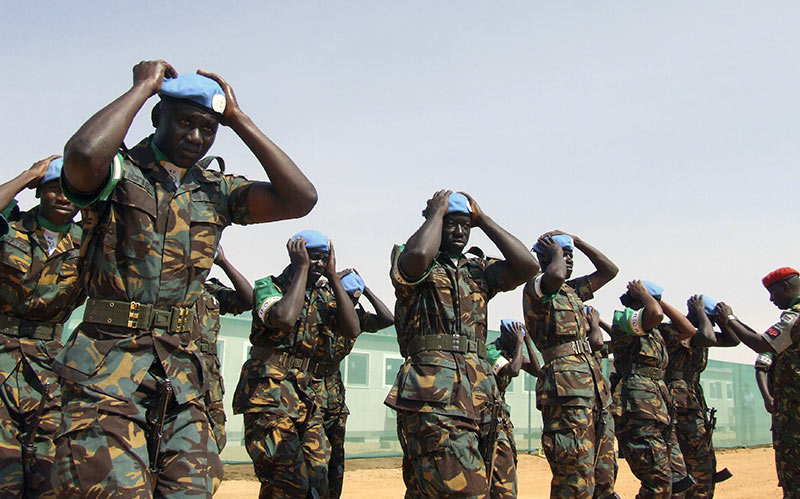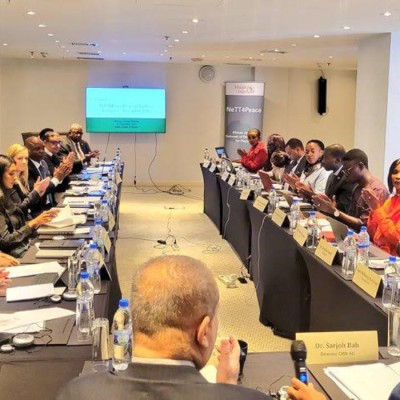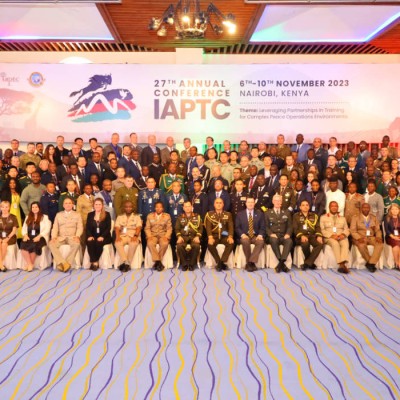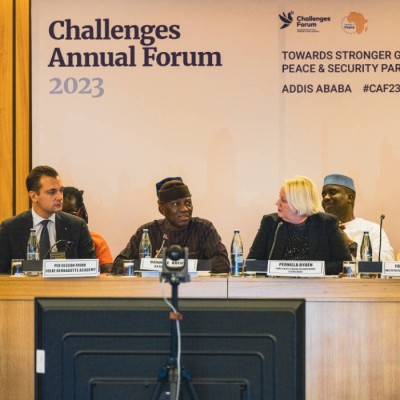The Peacekeeping Unit is situated within ACCORD’s Operations Department, alongside the Peacemaking and Peacebuilding Units. Its main goal is to ensure a multi-dimensional and integrated approach to peace operations on the continent. It has a dominant programme – the Training for Peace (TfP) in Africa Programme, funded by the Royal Norwegian Ministry of Foreign Affairs, which has been in existence since 1995. The TfP Programme’s primary purpose is to significantly improve the civilian capacity of African states, Regional Economic Communities (RECs) / Regional Mechanisms (RMs), the African Union (AU) and the United Nations (UN) to prepare, plan, manage and monitor multi-dimensional peacekeeping and peacebuilding operations in Africa. This is done through a combination of training, applied research and policy development, towards:
- building civilian capacity for AU and UN peace operations;
- contributing towards the development of a multi-dimensional and integrated approach to African peace operations;
- assisting the AU and the RECs/RMs in the development of the civilian structures of their standby forces and PLANELMs; and
- creating awareness on the civilian dimension of the ASF.
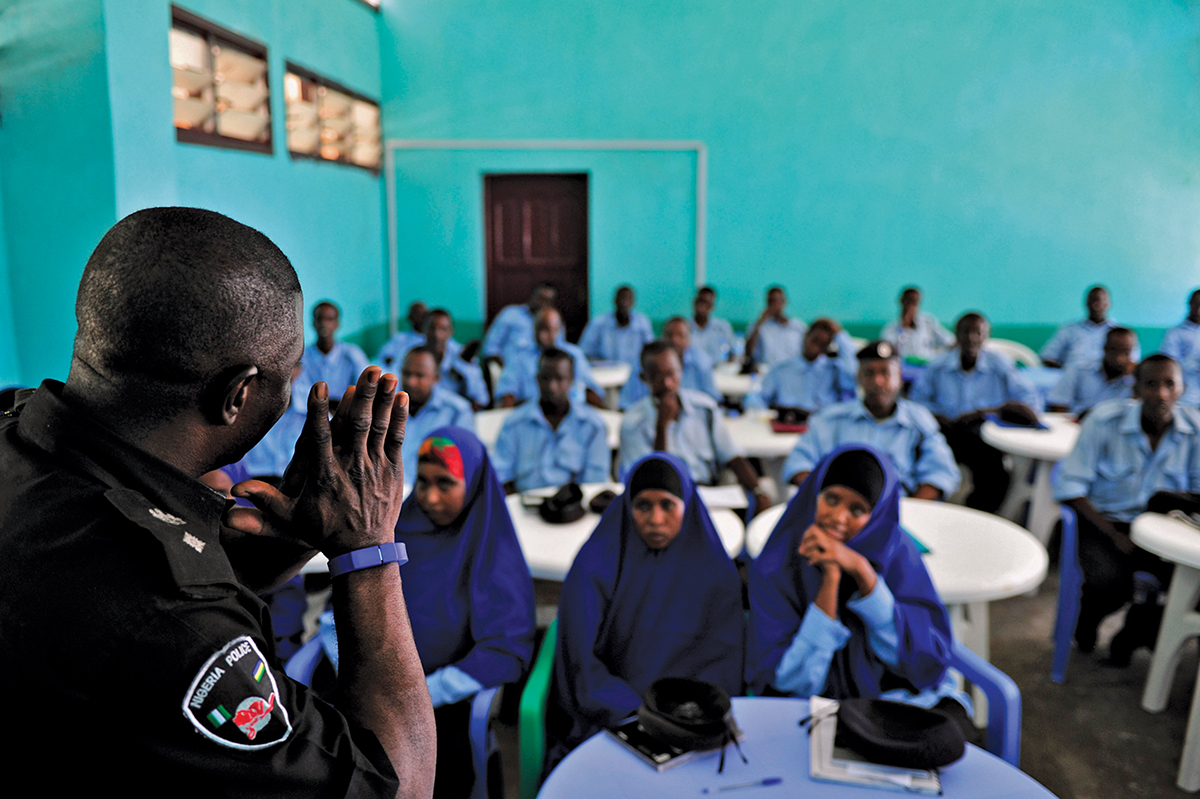
The Peacekeeping Unit, and its TfP Programme, have contributed to both UN and AU peace operations on the continent through training, policy development and research. It has contributed to: increased capability and professionalism of UN Civil Affairs; the development of a strategic framework on protection of civilians in UN peacekeeping operations; clarifying the peacekeeping-peacebuilding nexus; and enhancing civilian capacities. It has specifically focused on civil affairs, and has conducted research to understand the specific context and needs of Civil Affairs Officers. The Unit conducts specialized tailored in-mission conflict management training courses and supports the UN Department of Peacekeeping Operations (DPKO) Peacekeeping Best Practices Section (PBPS) in the roll out of the Civil Affairs Skills Training Methodology. It has also developed a Civil Affairs Handbook (launched in April 2012) that serves as a reference guide for (Civil Affairs) Officers in the field.
At the AU and Regional Economic Communities (REC) / Regional Mechanisms (RM) levels, the Peacekeeping Unit and its TfP Programme have contributed to the African Standby Force (ASF) Civilian Dimension Project for the development of the ASF – Africa’s future peacekeeping capacity. Specifically, the it has been part of the development of: the AU ASF Civilian Dimension Policy Framework; the AU ASF Civilian Dimension Implementation Plan; the Southern Africa Development Community (SADC) Standby Force (SSF) Civilian Dimension Policy Framework; the Eastern Africa Standby Force (EASF) Civilian Dimension Policy Framework; the AU Conduct and Discipline Concept Note; recommendations on the Staffing, Training and Rostering (STR) of the ASF Civilian Dimension (Kampala Report); recommendations on the ASF Civilian Standby Roster (Dar es Salaam Report); the ASF Civilian Dimension Book; and the ASF Civilian Dimension Job Descriptions.
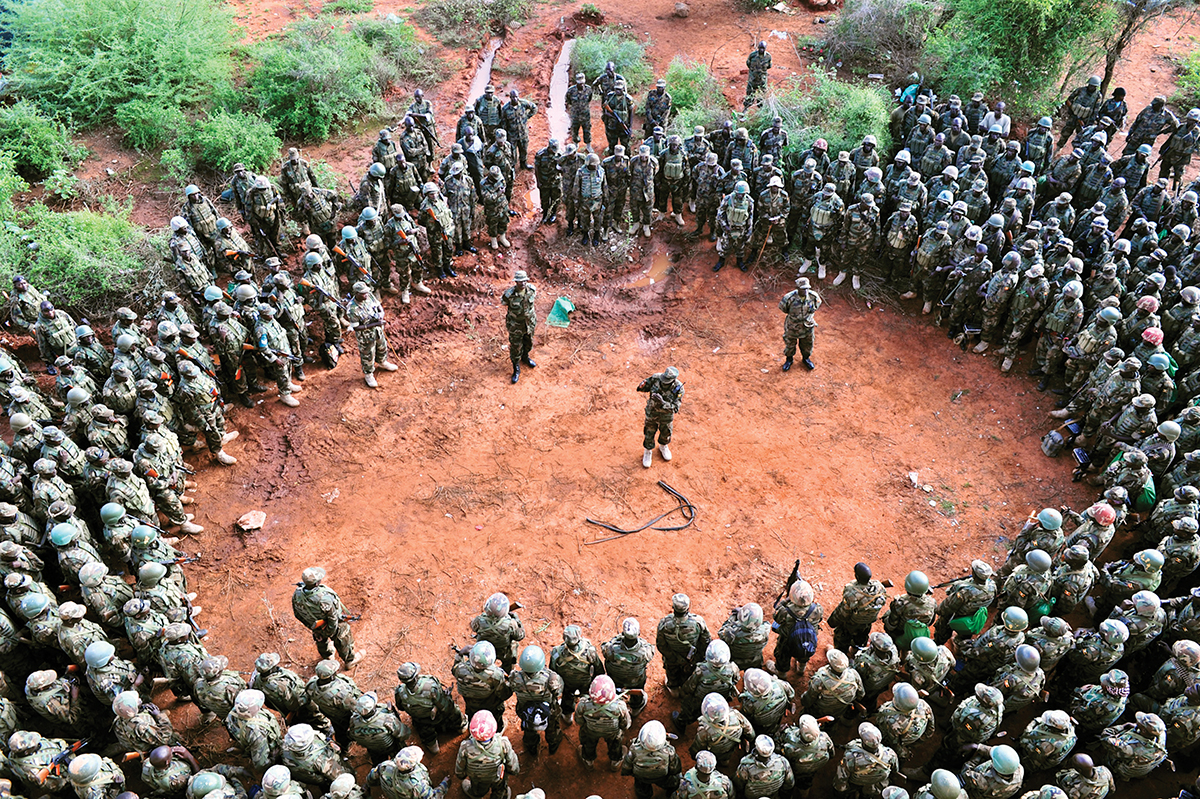
Noting that the capacities and capabilities needed at sub-regional, regional and the global levels within multi-lateral organisations, like the RECs/RMs, AU and UN, resides within Member States, the Peacekeeping Unit and its TfP Programme now also focus attention and efforts at this level to increase awareness and understanding of the civilian dimension, as well as the multidimensional and integrated approaches of peace operations. Thus, the Peacekeeping Unit and its TfP Programme are focusing on, and encouraging Member States to increase, multidimensional and integrated capacities and capabilities that can be utilised to match the needs, and appropriate response for, peace and security related engagements on the African continent.

